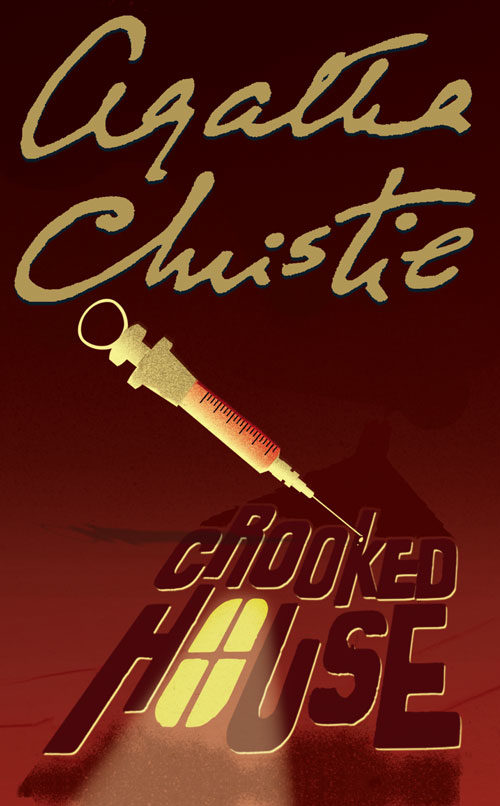- This edition published 1989 by William Collins
- Originally published in 1949
- ISBN 0-00-616864-7
- 188 pages
Synopsis (Agatha Christie.com)
A wealthy Greek businessman is found dead at his London home… The Leonides were one big happy family living in a sprawling, ramshackle mansion. That was until the head of the household, Aristide, was murdered with a fatal barbiturate injection. Suspicion naturally falls on the old man’s young widow, fifty years his junior. But the murderer has reckoned without the tenacity of Charles Hayward, fiance of the late millionaire’s granddaughter…
The crooked house of the title is much like the house in the nursery rhyme There was a Crooked Man. The narrator, in love with a daughter of the household, wonders if this means dishonest or as she describes it “twisted and twining”, unable to grow up independently, all surrounding the family patriarch and murder victim. The shock ending was nothing new for Agatha Christie but it certainly surprised her readers. It was so shocking in fact that her publishers at the time wanted her to change the ending, but Christie refused.
My Take
I'm re-reading this for the Agatha Christie discussion group that I am leading at U3A.
The story is set in London after World War II. Both Sophia Leonides and Charles Hayward have been overseas during the war.
Among the questions that I want to talk about with my group:
- the reliability of the narrator
- Agatha Christie's familiarity with poisons
- the portrayal of children in this novel
- the deception that Aristide Leonides resorted to about his will - was it justified or necessary?
- the portrayal of the main characters - can you visualise them?
- how realistic or ethical was it of Scotland Yard to involve Charles Hayward in the investigation?
- how surprised were you by the ending?
- Why was Aristide Leonides murdered?
What does his murder tell you about the murderer?
What was his opinion of the murderer?
Who did you consider might have been the murderer?
What red herrings were there?
Was there anyone you decided could not have committed the murder? - What about the other people who are murdered during the book?
We will follow our discussion up with the viewing of the 2017 film with Glenn Close and Max Irons in it. Do they think this film is a good interpretation of the novel?
Here is a quiz that I could direct them to.
My rating: 4.5

No comments:
Post a Comment